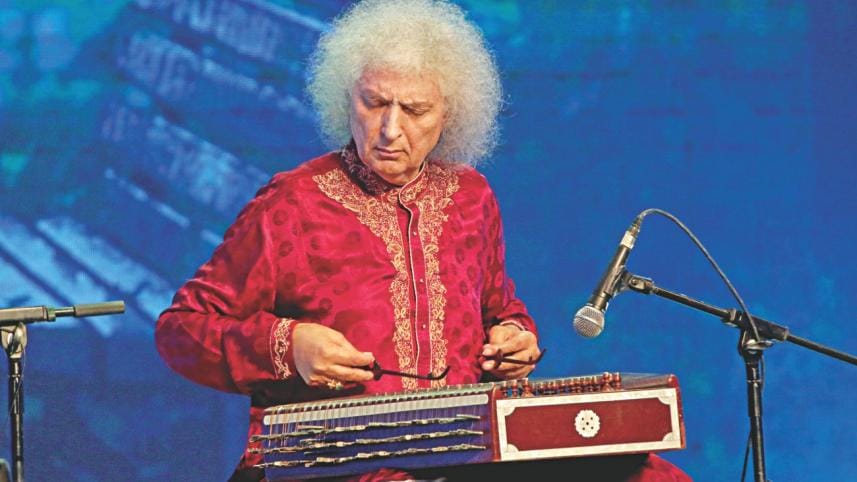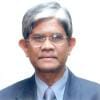Bengal Classical Music Festival, 2016: An Expression of Feelings

The five-day Grand Classical Music Festival has just concluded. The entire event was full of outstanding melodies, vocal-instrumental, and energy, serenity and deep feelings. The famous Santoor maestro, Pandit Shiv Kumar Sharma rightly said, “You don't have to understand classical music, you have to feel it”. Exactly that is how I and many others were perceiving, comprehending and appreciating the music being played at the festival. It was something heavenly and one gets frenetic in such music.
I do not understand classical musical so much but now I recognize that it is an acquired taste. Your eyes and ears should be given enough time to sense such music. Once you start listening to such divine and glorious music you become intoxicated. Before this festival started five years ago, I attended the famous Dover Lane Classical Music Festival in Kolkata. That was my initiation to classical music. I went there, spent a whole night, listened to the renowned maestros singing khayals, thumris, dhuns and playing sitar, tabla, violin, sarod, flute. I understood how to feel classical music. Then I have been attending all the five festivals of Bengal Classical Music Festival in Dhaka. I can now feel that I have acquired the taste of listening to the long hours of classical vocals and instrumentals. It is an extraordinary feeling, cannot be really expressed in words.
During the 2016 Festival, I enjoyed and internalised some of the unique performances of Santoor by Pandit Shiv Kumar Sharma and his son Rahul Sharma, Tabla solos and jugalbondis by Pandit Aninda Chatterjee and his son, Tabla duet by Pandit Yogesh Samsi and Pandit Subhankar Banerjee, Sarod by Pandit Tejendra Narayan Majumdar, Carnatic vocal classical by Ranjani and Gayatri, Khayal, Dhun and a South Indian rendition by Ajay Chakraborty and his young disciple, Sitar by Pandit Sanjoy Bandopadhyay, Purbayan Chatterjee, multiple sitar by students of Bengal Parampara Music School, Khayal and Dhun by Pandit Ulhas Kashalkar, Dr. Prabha Atre, Flute and Mandolin Jugalbondi by Pandit Ronu Majumdar and U Rajesh,
I would like to share my feelings listening to three remarkable and notable presentations. One, the way the musician played the instrument of 'Ghatam' with the Carnatic songs by Ranjani and Gayatri. Ranjani and Gayatri said something very meaningful, “When you have wealth, you have many friends, when there is no money, friends leave you”. Ghatam was a simple earthen pot, but the way it was played was simply mind blowing. Third was the 'sawal-jawab' between Sitar-Tabla, Tabla-Tabla, Sarod-Tabla, Vocal-Tabla and Flute-Tabla. It was unimaginable, as if they were dialoguing with one another. The final one was the Jugolbondi played in Mandolin and Flute. Words are not enough to explain the intense pleasure, delight and joy I received during their two-hour session. It was unique, the sounds and music were mesmerizing. The way the musicians 'talked' to each other through their instruments was 'sui generis'. The Tabla and Mridongo accompaniment was unbelievable. I was thinking how much of research, practice and knowledge was required to play at this level. It seemed humanly impossible.
Each one of these renditions was unparalleled, with their own style and performance. As I was listening, the music took me somewhere else, where I could see gardens, oceans, sky, mountains, forests, rains, snowfall, storms and nature. My heart and mind were for some time in a completely different place, away from the noisy, polluted, tense, struggling worldly environment. It felt so good and tranquil. The other aspects which were worth observing, studying and learning were the body languages of the maestros. Each and every performer had her/his own body movements, kenesics, gestures, motions and mannerisms through which they were communicating their music. It was spectacular and stunning.
All these performances were heart rendering. I felt as if my soul was being cleansed prophetically. With this wonderful energy renewed in me, I had to bid good bye to the Maestroes and am yet again thirsty for another round of such exceptional music. Thank you Bengal Foundation to have made it possible.
The writer is the former Pro-VC of BRAC University, and is currently an adjunct professor at Independent University Bangladesh and BRAC University




 For all latest news, follow The Daily Star's Google News channel.
For all latest news, follow The Daily Star's Google News channel.
Comments